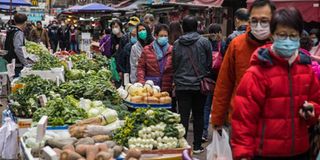China bans some food imports after coronavirus detected on shrimp

What you need to know:
- Samples taken from the packaging of Whiteleg shrimp at the port cities of Dalian and Xiamen tested positive for the virus, General Administration of Customs official Bi Kexin told a press conference.
- The emergence of a coronavirus cluster in Beijing last month has led to increased scrutiny of imported food, after the virus was found on a cutting board used to prepare imported salmon at the sprawling Xinfadi wholesale market.
Beijing,
China temporarily banned food imports from three Ecuadorian companies after detecting coronavirus on packaging for frozen shrimp, following fresh scrutiny on refrigerated goods after a recent disease outbreak in Beijing.
Samples taken from the packaging of Whiteleg shrimp at the port cities of Dalian and Xiamen tested positive for the virus, General Administration of Customs official Bi Kexin told a press conference.
Tests on samples from inside the packaging and the shrimp itself returned negative, however.
The customs authority said it was temporarily blocking imports from the three Ecuadorean companies whose products had tested positive.
THOROUGH CHECKS
The emergence of a coronavirus cluster in Beijing last month has led to increased scrutiny of imported food, after the virus was found on a cutting board used to prepare imported salmon at the sprawling Xinfadi wholesale market.
China has banned imports from a number of overseas food producers that have reported virus outbreaks, including top US poultry exporter Tyson Foods and German meat company Toennies.
The country has also launched a nationwide campaign to test imported refrigerated food products from "high-risk countries".
Bi said that Chinese customs authorities have tested more than 220,000 samples from food products, packaging and the environment surrounding them since the discovery of the Xinfadi cluster.
No other products showed traces of the virus, Bi said, adding that the detection of virus traces on the shrimp did not conclusively mean the products were contagious.





